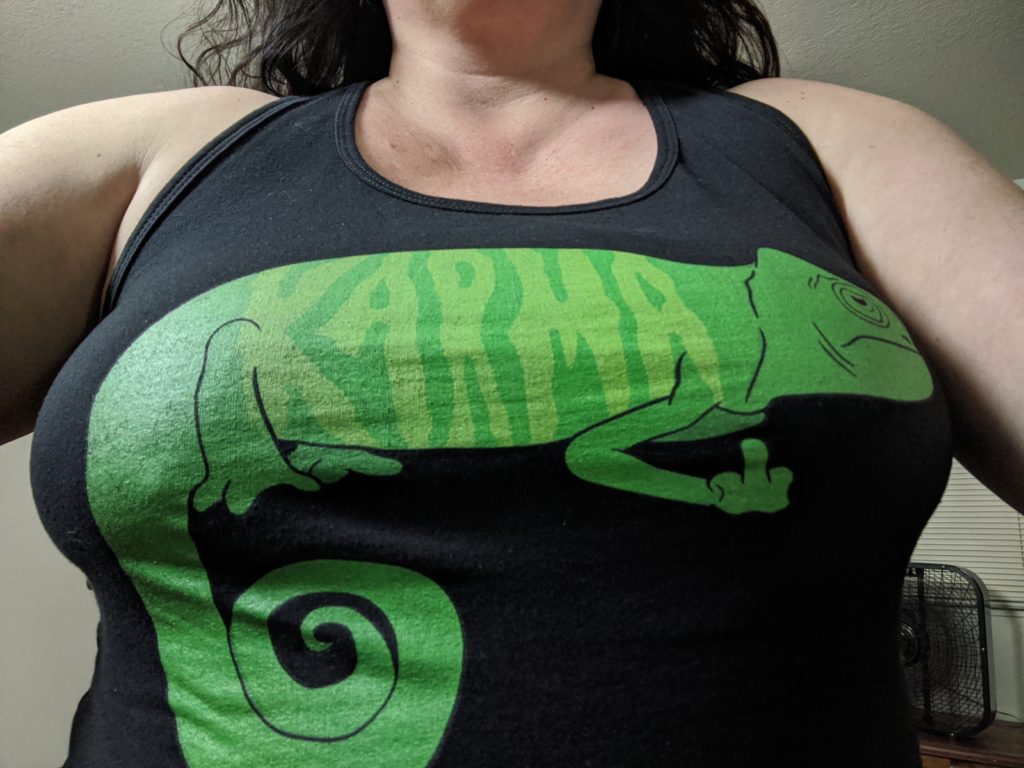Many years ago, I was in a writing group, but I felt strange saying so.
I was having a hard time calling myself a writer.
Imposter syndrome is very well documented. In this case, it was pretty absurd.
I had several publications, and I wrote in all kinds of genres. I’d even had a play produced at a festival, before I went to college.
But saying “I’m a writer” felt wrong.
I don’t know what I was waiting for, exactly. It certainly couldn’t be to make my living just from writing–being able to do so is incredibly rare.
Talking about my fear of presumption, though, with the other writers, made that fear go away.
“Writer” has been on my business card now for quite a few years.
Now, there’s another term I’m uncertain about.
This week, I’ll be asked to fill out demographic information for UCD.
Do I check “disabled”?
Last night, I performed at the anniversary Invisible Disabilities show.
I have an hour long one-woman show on being a chronic pain patient.
I relied on my cane for more days than not during my last two trips. And I’m relying more and more on pain medicine to walk and to sleep, especially now that another disc has herniated. I average four body appointments a week; I’m never not in physical therapy for some body part or another.
Many aspects of my life are compromised.
But the word seems strange.
Is it because my disabilities are usually invisible?
Is it because I know I’m luckier than most disabled people?
I’m very scared about my future a lot of the time, but for now, I can usually get through the day.
When I figured out I had fibromyalgia when I was in my twenties, my best friend (a med student) told me not to take on the label, that doctors would refuse to take me seriously.
The word still isn’t in my chart. I asked my pain doctor about it two years ago. “Well, obviously you have it,” he said. “But I don’t want to put it in your chart.”
“Why?”
“Too many of my patients use that diagnosis, that word, to just quit. They decide they can’t work, that they can’t get better.”
That’s not me. My goal has always been to be functional. My workaholism won’t let me do anything else.
But I needed “fibromyalgia” to understand what was happening, even before we really knew what it was. That word meant I wasn’t crazy, despite what some doctors might have thought.
(And now that we know it’s about having more pain receptors than normal people, it explains so much.)
Maybe I’m afraid of this word because I’m afraid of being seen as a fake. I went back to work only six days after my first major back surgery (five weeks and a day before I was supposed to). I had a temporary disabled placard, since it hurt so badly to walk far.
The first day I used it, there was a cop waiting for me when I returned to my vehicle. Someone had called to report a perfectly healthy woman who was obviously lying.
I showed the officer all the paperwork; I even offered to show him my still-bright-red scar.
But I didn’t use the placard again.
It’s 20 years later.
It’s time to reconsider–not getting the placard (I don’t need it yet). It’s time to reconsider my relationship to this word.
I am disabled, if often invisibly so.
If I do let myself use it, I want it to work for me. I want it to be a weapon I can use against my workaholism, against the voice in my head that says I’m worthless when I’m not working.
I want to take myself and my pain seriously, and to cut myself a lot more slack. My workaholism makes my pain, my disability, worse every day.
I need to find a way to rest more.





Recent Comments